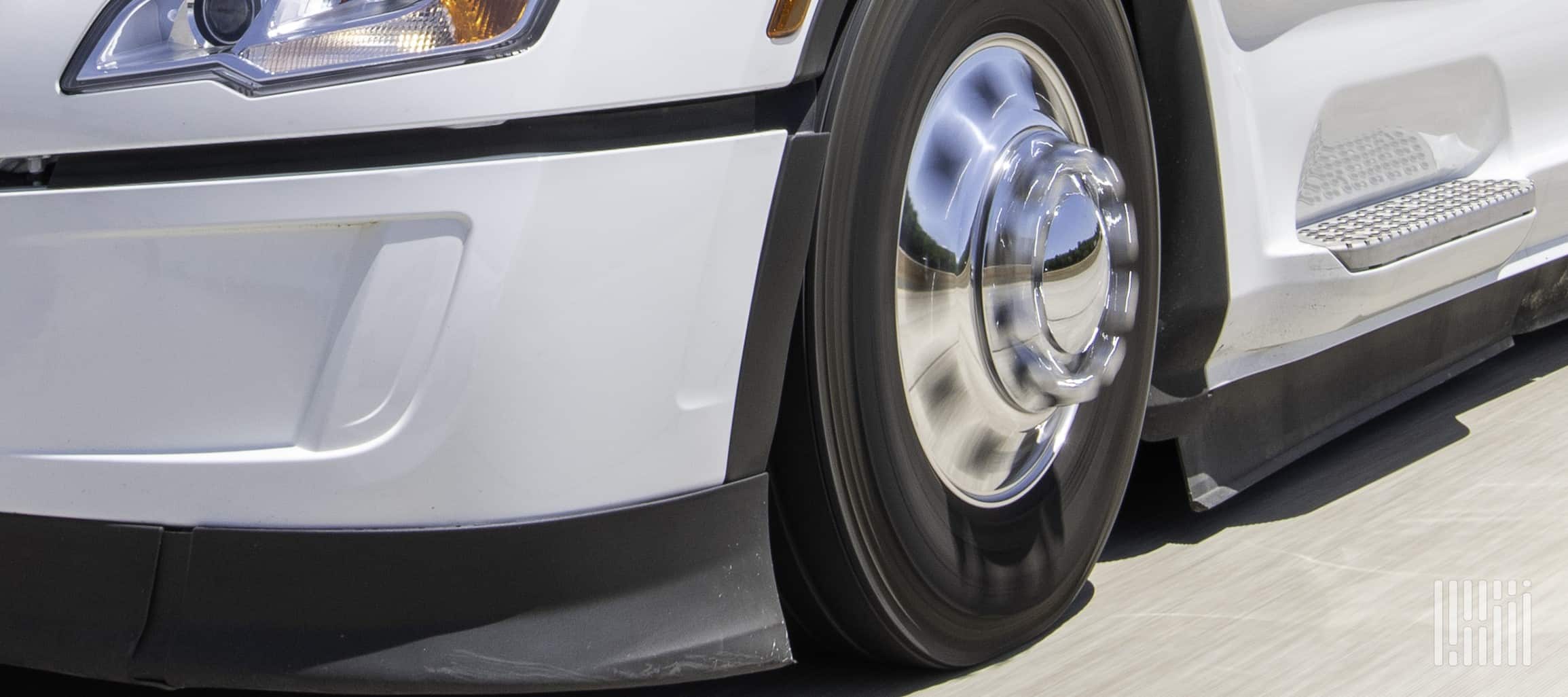Ensuring the safety and longevity of your tires is paramount for any road trip or haul. One key way to achieve this is by investing in a high-quality tire pressure monitoring system (TPMS).
This article will guide you through the essential features and considerations when purchasing a TPMS for your vehicle or trailer, helping you make an informed decision. Understanding how to select the right TPMS can enhance your driving safety, improve fuel efficiency, and save you money in the long run.
What is a tire pressure monitoring system?
A TPMS is designed to provide real-time information about the tire pressure of a vehicle or trailer with the use of tire pressure monitoring sensors. These systems are crucial for improving vehicle safety, increasing tire lifespans, and enhancing fuel efficiency.
There are also TPMS for trucks, TPMS for semi trucks, and TPMS for RVs, ensuring a wide range of vehicles can be outfitted with this safety feature.
What is a TPMS sensor, and how does a tire sensor work?
A TPMS tire sensor is a device located inside each tire of a vehicle, attached to the wheel. It works by alerting drivers to potential safety issues. If tire pressure falls below or above manufacturer-recommended levels, it triggers a dashboard warning light so drivers can take steps to adjust it.
Are TPMS sensors required?
In the U.S., TPMS sensors are indeed required on all passenger vehicles, including cars, vans, and light trucks manufactured after September 2007. This requirement was established by the National Highway Traffic Safety Administration (NHTSA) as a safety measure to prevent accidents caused by underinflated tires.
But, you may be asking, is it illegal to disable TPMS on a vehicle? Yes, it’s against the law whether you’re an owner or a mechanic.
Regulations may differ in other countries or regions. It’s always best to check the specific regulations in your area or consult with a professional to ensure compliance.
8 benefits of a TPMS
A TPMS system has many benefits, especially when it comes to safety and efficiency during travel. Here are some notable advantages:
- Improved safety: A TPMS constantly monitors tire pressure and alerts the driver when the pressure is too low or too high. This can prevent accidents related to tire blowouts or flat tires.
- Prolonged tire life: By ensuring that tires are always properly inflated, a TPMS can extend the lifespan of the tires. This can result in significant savings over time, given the high TPMS sensor replacement cost.
- Fuel efficiency: Properly inflated tires are key to optimal fuel efficiency. A TPMS can thus contribute to reducing fuel costs by ensuring tires are always at the right pressure.
- Peace of mind: Especially when traveling long distances or in remote areas, a TPMS provides peace of mind that the tires are in good condition.
- Time-saving: No need for manual tire pressure checks. A TPMS automates this process, freeing up time for other important tasks.
- Versatility: A TPMS isn’t just for passenger cars. There are systems specifically designed for larger vehicles, including TPMS for trucks and TPMS for semi trucks, and even a travel trailer TPMS.
- Prevent damage: By detecting low pressure early, a TPMS can help prevent damage to other vehicle components, such as the rims or suspension system.
- Compliance: Some regions require the use of TPMS, so having a system installed can help ensure you’re following all regulations.
In summary, a sensor for tire pressure is a valuable investment that can enhance safety, increase efficiency, and save time and money.
What to look for in a tire pressure monitoring system
When choosing a tire pressure monitoring system for trucks or vehicles, there are several important features to consider for optimal performance and reliability:
- Ease of TPMS sensor installation: Consider how easy it is to install the system. Some systems may require professional installation, while others may have a DIY approach. Look for clear instructions on how to install TPMS sensors.
- Accuracy: A good TPMS should provide accurate readings. This is crucial for maintaining proper tire pressure and ensuring safe driving conditions.
- Alert types: The system should offer clear and timely alerts when the tire pressure is outside the safe range. A tire pressure monitoring system warning light is standard, but some systems might also offer auditory alerts or vibration.
- Sensor durability: TPMS sensors should be durable and able to withstand varying road and weather conditions. Some models are specifically designed as trailer tire pressure sensors, providing robust performance for trailer-specific conditions.
- Battery life: A system with a long battery life is desirable. Consider how often the batteries will need to be replaced and how easy it is to do so. Remember, the TPMS replacement cost can add up over time.
- Compatibility: Ensure the system is compatible with your specific vehicle or trailer type.
- Customer support: A company with good customer support can be invaluable, especially if you want detailed answers to questions like ‘how does a TPMS work,’ or ‘why is my TPMS sensor light on?’
- Price: While cost shouldn’t be the only consideration, it’s important to choose a system that offers good value for money. Be sure to consider both the initial cost and any ongoing costs, such as sensor replacement.
How much does a TPMS sensor cost?
The cost of a TPMS sensor can vary widely based on the make and model of your vehicle, as well as the brand of the sensor. On average a single TPMS sensor can range anywhere from $50 to $100 for the part itself.
If you are having the sensor professionally installed, labor costs can add to the total. Installation can be anywhere from $20 to $100 per tire depending on the complexity of the installation and local labor rates.
Keep in mind that prices fluctuate based on market conditions. It’s always a good idea to compare offers from several retailers to find the best price for your specific needs.
Gain peace of mind with a TPMS
In conclusion, a TPMS is an essential tool for maintaining proper tire pressure, thereby improving road safety and potentially extending the lifespan of the tires.
By carefully considering the factors outlined above, you can find a TPMS sensor tool that offers the best combination of performance, reliability, and value for your needs.
FAQ
A trailer TPMS system works by using sensors installed in each tire to monitor tire pressure and temperature. The data is sent wirelessly to a central monitor, alerting the driver if tire pressure falls outside a predetermined level.
The TPMS sensor is typically located inside the tire, attached directly to the wheel. This placement allows it to accurately measure the pressure and temperature within the tire.
Most TPMS sensors are powered by small, built-in batteries. However, these batteries are sealed within the sensor and cannot typically be replaced. This means the entire sensor must be replaced when the battery eventually dies.
We are excited to announce the launch of move.freightwaves.com, a revolutionary resource designed to transform how consumers choose auto-shipping companies. Check it out today!


